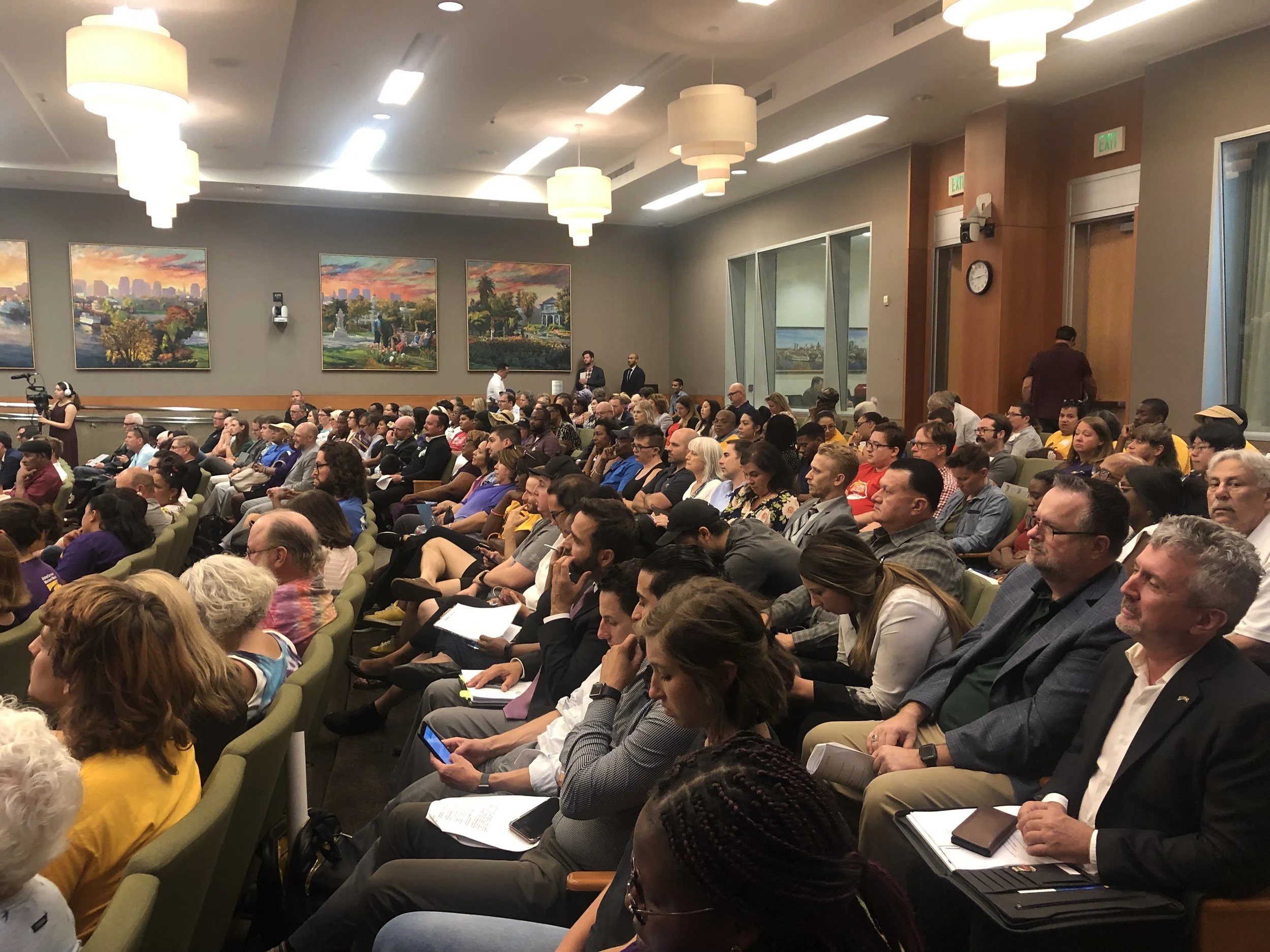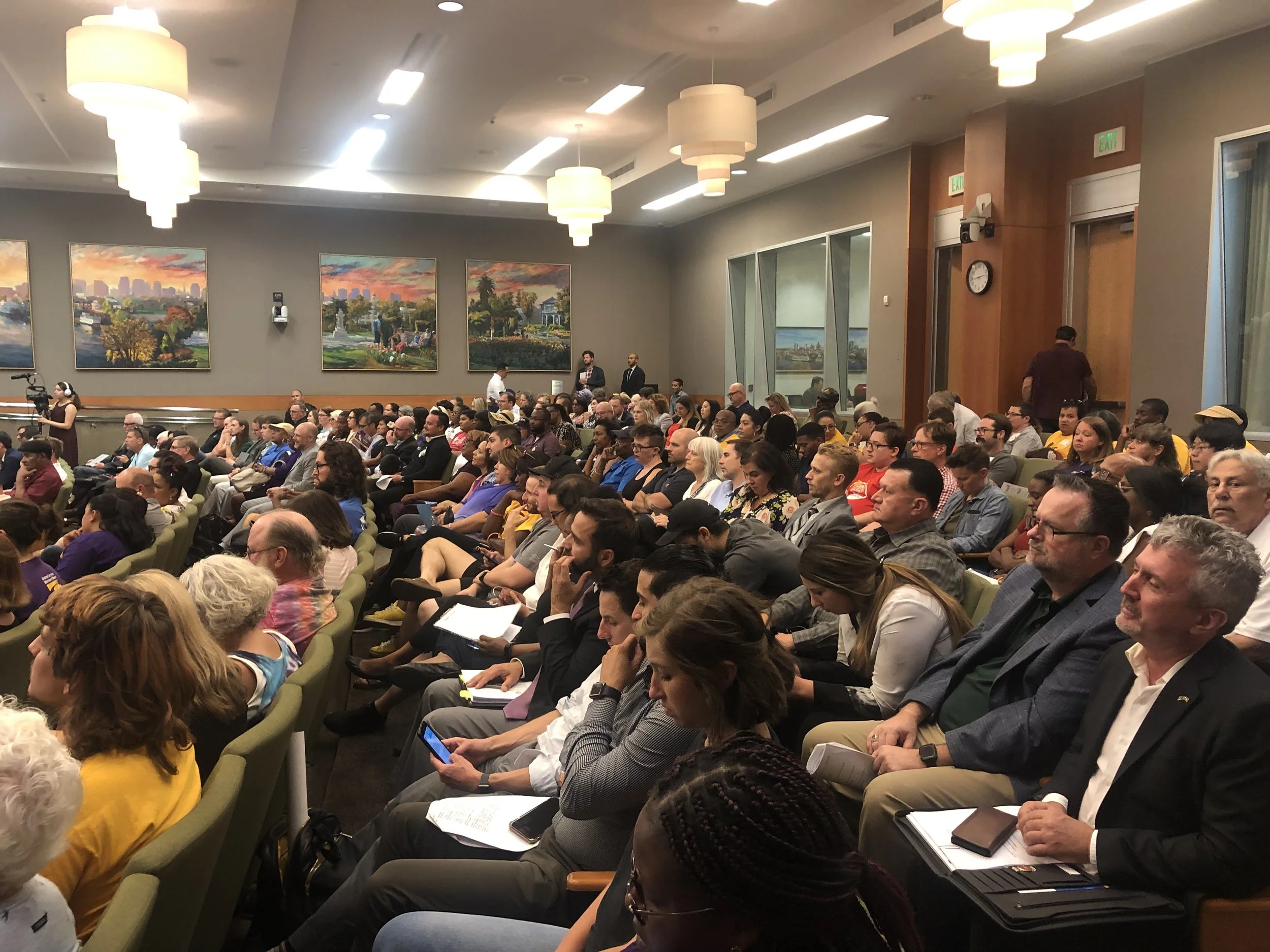Questions about Sacramento's new tenant protection program? Here are answers
Sacramento’s new rules to protect tenants from rent gouging and unfair eviction take effect on Thursday, Sept. 12.
The City Council chambers was packed for the August vote on new renter protections.
The new ordinance limits annual rent increases to 6 percent plus the Consumer Price Index (CPI) for apartments built before 1995. The maximum rent increase can’t exceed 10 percent. It also prohibits eviction without just cause.
Learn more about the program and sign up for information at http://www.cityofsacramento.org/TPP
If you feel your landlord has violated the ordinance, you can file a complaint at tpp@cityofsacramento.org. You can also call 916-808-8121. If the city determines there was a potential violation, your case will go to a hearing officer. It will take at least three months for the hearing process to be fully up and running, but the city will be scheduling some hearings with existing staff.
Below are some answers to frequently asked questions about the new ordinance:
What is the Tenant Protection and Relief Act?
On August 13, 2019, the Sacramento City Council adopted the Tenant Protection and Relief Act. This ordinance limits rent increases and prohibits no-cause evictions. The ordinance becomes effective on September 12, 2019. All landlords with units that are subject to this code must pay a Tenant Protection Program fee (to be established) and will be included in a rental housing registry.
What units are covered by this ordinance?
Multifamily units and mobile home rentals built before February 1, 1995 (based on date of certificate of occupancy or final inspection) are included. The key exceptions to the ordinance include:
• Units built after February 1, 1995
• Single family homes
• Condominiums, units occupied by landlord property agent or immediate family
• Government subsidized low income housing
How often can rent be increased?
The rent cannot be increased more than once in a 12-month period.
What is maximum amount rent can increase?
The rent increase cannot exceed 6 percent plus the change in the Consumer Price Index (CPI). The maximum rent increase cannot exceed 10 percent. The initial CPI Rate for rate increases effective September 12, 2019 will be 2.5 percent. Therefore, the maximum rate increase allowed in 2019 will be 8.5 percent.
What is the base rent?
For tenancies on or before September 12, 2019, the initial base rent is the monthly rent effective July 1, 2019. For tenancies after July 1, 2019, the initial base rent is the monthly rent set forth in the housing agreement. If there is no housing agreement, it is the amount charged by the landlord upon initial occupancy.
Can the rent be increased above the maximum for fair rate of return?
A landlord can submit a petition to request a review by a hearing examiner to increase the rent to provide a fair rate of return.
What factors are considered to determine a fair rate of return?
The following primary factors are considered by the hearing examiner to approve an increase above the maximum for a fair rate of return:
• Property tax increases
• Unavoidable increases in maintenance and operating costs
• Planned capital improvements required for health and safety; repair costs to address substantial deterioration not due to lack of routine repair and maintenance
• Increases in the cost of housing services
• Debt service payments for new owners
What factors are not considered to determine fair rate of return?
The following factors cannot be considered by the hearing examiner:
• Ongoing operating and maintenance costs
• Remodeling not required to address health and safety
• Landlord income taxes
• Penalties for violations of the Sacramento City Code related to the rental unit
• Cost increases that arose before occupancy by the tenant
Can the rent be increased between tenancies?
After a rental unit has been vacated, a landlord may establish base rent for a new tenant under a new rental housing agreement. Thereafter, any increase in the rent for the new tenant must comply with the code.
Is the landlord required to renew a lease?
A landlord must offer to renew a rental housing agreement if a tenant has resided in the rental unit for more than 12 months (e.g., one year plus one day). A landlord is not required to renew a lease agreement with a tenant who has resided in the rental unit for 12 or less months.
Can a landlord evict a tenant without cause?
Once a tenant has resided in a rental unit for more than 12 months, evictions are prohibited under this ordinance without “just cause.”
Under what conditions can a landlord evict a tenant?
It is required that any notice to vacate (any action to recover possession) provide a just cause for the eviction. Notice vacate must be based on one of the following conditions in accordance with Sacramento City Code Section 5.156.090:
• Failure to pay rent
• Breach of rental housing agreement
• Criminal or nuisance activity
• Failure to give access
• Necessary and substantial repairs requiring temporary vacancy
• Owner move-in
• Withdrawal of the rental unit from rental market
What if a tenant believes a landlord has violated the code?
A tenant can file a petition for a hearing if he or she believes the landlord has violated the ordinance. This includes activities such as increasing the rent higher than what is allowed by ordinance or a hearing examiner or terminating a rental agreement without cause. An independent hearing examiner will consider all the relevant evidence presented and render a decision based on findings of fact.
What are the penalties for violating the ordinance?
Staff can impose administrative penalties against landlords for violation of the ordinance which can range from $100 to $25,000 per violation.
The provisions of the Tenant Protection and Relief Act will be addressed in greater detail in administrative procedures when finalized.





